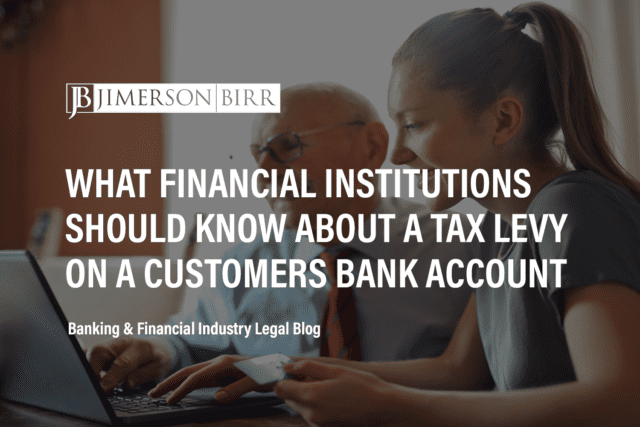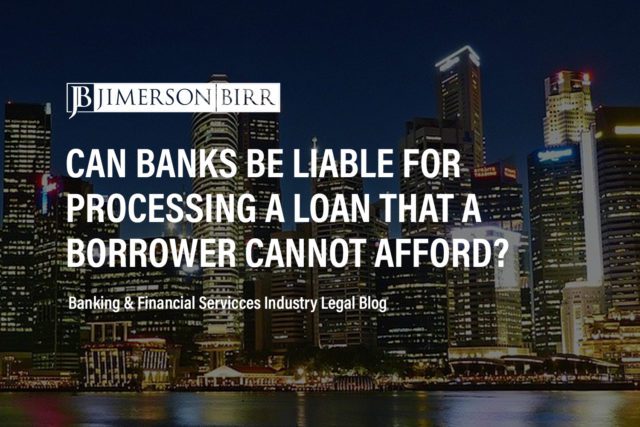How do secured and unsecured lending transactions affect banking companies?
Secured and unsecured lending transactions have significant implications for banking companies, impacting their risk profiles, profitability, and regulatory compliance obligations. In secured lending transactions, banking companies extend credit to borrowers backed by collateral, such as real estate, inventory, or equipment. This collateral serves as security for the loan, providing the bank with a legal claim to the assets in the event of default. Secured lending transactions offer banks a higher level of protection against borrower default and loss, as they can seize and liquidate the collateral to recover outstanding loan balances. Additionally, secured lending transactions typically carry lower interest rates for borrowers, reflecting the reduced risk for the bank.
Unsecured lending transactions involve extending credit to borrowers without requiring collateral as security. Unsecured loans are based solely on the borrower’s creditworthiness, financial stability, and ability to repay. While unsecured lending transactions offer banks opportunities to generate higher interest income and fees, they also pose greater credit risk. Without collateral to secure the loan, banks are more vulnerable to losses in the event of borrower default. As a result, banks may impose stricter eligibility criteria, higher interest rates, or lower credit limits on unsecured loans to mitigate risk.
Both secured and unsecured lending transactions are subject to oversight and compliance requirements designed to ensure the safety and soundness of banking operations. Banking companies must adhere to regulations governing lending practices, consumer protection, fair lending, anti-money laundering, and disclosure requirements. Compliance with these regulations is essential for banking companies to mitigate legal and reputational risks, avoid regulatory enforcement actions, and maintain trust with customers and stakeholders.
Need help regarding secured and unsecured lending transactions? Schedule your consultation today with a top banking attorney.
In Florida, which laws and regulations apply to secured and unsecured lending transactions?
In Florida, banking companies are subject to a combination of state and federal laws and regulations governing secured and unsecured lending transactions. Some of the key laws and regulations relevant to banking companies in Florida include:
- Florida Uniform Commercial Code (Florida Statues, Chapter 679): The Florida UCC governs secured transactions, including the creation, perfection, and enforcement of security interests in personal property. Article 9 of the UCC establishes rules for secured transactions, including the filing of financing statements, priority of security interests, and rights of secured creditors upon default
- Florida Consumer Finance Act (Florida Statutes, Chapter 516): The FCFA regulates consumer lending activities in Florida, including requirements for licensing, disclosures, interest rates, fees, and unfair or deceptive practices. The FCFA applies to various types of consumer loans, including personal loans, installment loans, and payday loans.
- Florida Fair Lending Act: The FFLA prohibits discriminatory lending practices based on race, color, religion, national origin, sex, marital status, age, or disability. It applies to both secured and unsecured lending transactions and prohibits lenders from engaging in practices that result in disparate treatment or disparate impact on protected classes of borrowers. There is a similar federal law entitled the Equal Credit Opportunity Act.
- Federal Truth in Lending Act (TILA): TILA is a federal law that requires lenders to provide consumers with clear and accurate disclosures about the terms and costs of credit transactions. TILA applies to various types of consumer loans, including secured and unsecured loans, and mandates disclosures such as the annual percentage rate (APR), finance charges, and payment terms.
- Federal Fair Debt Collection Practices Act (FDCPA): The FDCPA regulates debt collection practices and applies to creditors and debt collectors engaged in collecting consumer debts. It prohibits abusive, deceptive, or unfair practices in debt collection and imposes requirements for communications with consumers, validation of debts, and debt collection litigation.
What are common issues regarding secured and unsecured lending transactions that lead to litigation?
Several common issues related to secured and unsecured lending transactions can lead to litigation:
- Default and Non-Payment: One of the most common issues leading to litigation in lending transactions is borrower default and non-payment. This occurs when borrowers fail to repay the loan according to the terms outlined in the loan agreement. Lenders may initiate legal action to recover the outstanding debt, enforce security interests, or repossess collateral pledged for the loan.
- Breach of Contract: Disputes arising from alleged breaches of contract between lenders and borrowers can lead to litigation. This may include disputes over the interpretation of loan agreements, failure to perform contractual obligations, or violations of terms and conditions outlined in the loan documentation. Litigation may ensue to enforce contractual rights, seek damages for breaches, or obtain specific performance remedies.
- Fraud and Misrepresentation: Allegations of fraud, misrepresentation, or deceptive practices by lenders or borrowers can lead to litigation in lending transactions. This may include claims of false statements, concealment of material information, or inducement to enter into a loan agreement under false pretenses. Litigation may arise from allegations of fraud in the loan origination process, loan servicing activities, or foreclosure proceedings.
- Predatory Lending Practices: Disputes involving allegations of predatory lending practices can lead to litigation. This includes claims of unfair, deceptive, or abusive lending practices that exploit vulnerable borrowers or result in financial harm. Predatory lending practices may involve excessive fees, high-interest rates, loan flipping, or steering borrowers into unaffordable loan products.
- Usury Violations: Usury laws impose limits on the maximum interest rates that lenders can charge on loans. Disputes may arise if lenders charge interest rates that exceed legal limits, resulting in allegations of usury violations. Litigation may ensue to recover excessive interest payments, void usurious loan contracts, or seek statutory penalties against lenders.
- Collateral Disputes: Disputes over collateral pledged for secured loans can lead to litigation. This may include disputes over the validity, priority, or enforceability of security interests, as well as challenges to the ownership or valuation of collateral. Litigation may arise from disagreements between lenders and borrowers over the rights to collateral in foreclosure proceedings or bankruptcy cases.
We are value-based attorneys at Jimerson Birr, which means we look at each action with our clients from the point of view of costs and benefits while reducing liability. Then, based on our client’s objectives, we chart a path to seek appropriate remedies.
To determine whether your unique situation may necessitate litigation, please contact our office to set up your initial consultation.
What steps should businesses take to minimize the risk of litigation over secured and unsecured lending transactions?
- Clear and Comprehensive Documentation: Ensure that all lending transactions are documented clearly and comprehensively, including loan agreements, promissory notes, security agreements, and any other relevant documentation. Clearly outline the rights, obligations, and remedies of both parties to mitigate misunderstandings and disputes.
- Thorough Due Diligence: Conduct thorough due diligence on borrowers, including creditworthiness assessments, financial analysis, and background checks. Verify the accuracy and completeness of borrower information to assess repayment capacity and risk factors, reducing the likelihood of default or litigation.
- Adherence to Regulatory Compliance: Maintain strict adherence to state and federal laws and regulations governing lending practices, consumer protection, fair lending, and debt collection. Ensure compliance with disclosure requirements, interest rate limitations, fair credit reporting, anti-discrimination laws, and other regulatory obligations to mitigate legal and regulatory risks.
- Risk Management Practices: Implement robust risk management practices to identify, assess, and mitigate potential risks associated with lending transactions. Develop policies and procedures for underwriting, loan approval, monitoring, and collection activities to minimize credit risk, fraud risk, and operational risk.
- Security and Collateral Protection: For secured lending transactions, obtain and perfect security interests in collateral to mitigate the risk of loss in the event of borrower default. Conduct thorough collateral assessments, including valuations and title searches, to ensure the adequacy and enforceability of security interests.
- Transparency and Fair Treatment: Maintain transparency and fairness in lending practices to build trust and credibility with borrowers and reduce the likelihood of disputes or allegations of unfair or deceptive practices. Provide clear and accurate disclosures of loan terms, fees, and repayment obligations to borrowers to facilitate informed decision-making.
- Effective Communication and Dispute Resolution: Establish open and effective communication channels with borrowers to address concerns, resolve issues, and prevent escalation of disputes. Implement dispute resolution mechanisms, such as mediation or arbitration clauses in loan agreements, to facilitate timely and cost-effective resolution of disputes outside of litigation.
Frequently Asked Questions
What are some examples of secured lending transactions?
A secured lending transaction involves extending credit to a borrower backed by collateral, such as real estate, inventory, or equipment. The collateral serves as security for the loan, providing the lender with a legal claim to the assets in the event of borrower default.
What are the advantages of secured lending transactions for lenders?
Secured lending transactions offer lenders greater protection against borrower default and loss, as they can seize and liquidate collateral to recover outstanding loan balances. Secured loans typically carry lower interest rates for borrowers, reflecting the reduced risk for the lender.
What are the risks of unsecured lending transactions for lenders?
Unsecured lending transactions pose greater credit risk for lenders, as they rely solely on the borrower’s creditworthiness to repay the loan. Without collateral to secure the loan, lenders are more vulnerable to losses in the event of borrower default.
Have more questions about a secured or unsecured lending transaction?
Crucially, this overview of secured and unsecured lending transactions does not begin to cover all the laws implicated by this issue or the factors that may compel the application of such laws. Every case is unique, and the laws can produce different outcomes depending on the individual circumstances.
Jimerson Birr attorneys guide our clients to help make informed decisions while ensuring their rights are respected and protected. Our lawyers are highly trained and experienced in the nuances of the law, so they can accurately interpret statutes and case law and holistically prepare individuals or companies for their legal endeavors. Through this intense personal investment and advocacy, our lawyers will help resolve the issue’s complicated legal problems efficiently and effectively.
Having a Jimerson Birr attorney on your side means securing a team of seasoned, multi-dimensional, cross-functional legal professionals. Whether it is a transaction, an operational issue, a regulatory challenge, or a contested legal predicament that may require court intervention, we remain tireless advocates at every step. Being a value-added law firm means putting the client at the forefront of everything we do. We use our experience to help our clients navigate even the most complex problems and come out the other side triumphant.
If you want to understand your case, the merits of your claim or defense, potential monetary awards, or the amount of exposure you face, you should speak with a qualified Jimerson Birr lawyer. Our experienced team of attorneys is here to help. Call Jimerson Birr at (904) 389-0050 or use the contact form to schedule a consultation.

We live by our 7 Superior Service Commitments
- Conferring Client-Defined Value
- Efficient and Cost-Effective
- Accessibility
- Delivering an Experience While Delivering Results
- Meaningful and Enduring Partnership
- Exceptional Communication Based Upon Listening
- Accountability to Goals











